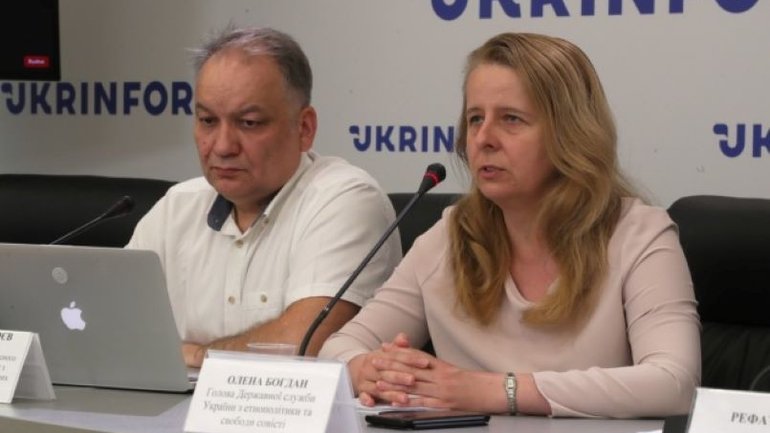Only sermons agreed with the occupiers are allowed in Crimean mosques — State Service for ethnic policy

This was announced at a press conference themed "Two Flags – One Country", dedicated to the day of the Crimean Tatar flag, held in the Media Center Ukraine, the head of the State Service of Ukraine for Ethnic Policy and Freedom of Conscience (DESS) Olena Bohdan told Ukrinform.
"Our service monitors the situation in the occupied territories on religious issues and on the rights of ethnic communities. And we see that in fact, today only coordinated sermons are allowed in mosques in Crimea," Bohdan said.
She stressed that in the territory of Ukraine free from the invaders, every religious leader, every believer can say what he deems appropriate in his native home, in the church, in the mosque. In occupied Crimea, there is a very sad choice – either you cooperate with the occupation authorities and never object to them, or you will be a prisoner, tortured. Bohdan stressed that human rights defenders and state authorities of Ukraine recorded numerous human rights violations in the territories occupied by the Russian aggressor.
The Crimean Tatar Flag Day is marked in Ukraine on June 26.
In the temporarily occupied Crimea, the Russian Federation resorts to large-scale persecution on religious grounds. According to the Crimean Tatar Resource Center, 89 people are being prosecuted in the "Hizb ut-Tahrir case", 86 of them being representatives of the indigenous Crimean Tatar people. It is reported that 55 of them are serving their sentences in Russian prisons and penal colonies, and 31 are in pre-trial detention centers, while 3 were released.
The only "evidence" is banned Islamic literature found during searches, FSB operational data, and audio recordings that allegedly show that the convicts held discussions on religious and political topics. The activists are accused of involvement in the activities of the Hizb ut-Tahrir organization banned in the Russian Federation, which has no restrictions on its activities in most countries of the world.









